#bbc robbed us
Text
When I say Merlin is my comfort show, I probably should strictly elaborate that I mean S1 Merlin. Although most of my favourite episodes are not even in that season, but it just brings insane levels of comfort. Really, why the fuck did the writers deviate so much from it? If for the "character development" narrative, there's literally nothing that was not perfect about their characterizations in s1:
Banter boyfriends? Check.
Exponentially affecting each other both positively and (sometimes tinges of) negatively? Check.
“I see your village is raided.. one sec I'll follow you till the end of earth to protect you and all those you care about.” Check.
Able to mentally grow from the restraining mindsets of Uther (and in Merlin's case Kilgharrah) when they consolidated together in letting go of Mordred despite being told the reverse. (Which was one of the reasons for their downfall, being held back by thoughts and actions that were not their own). Check.
Arthur actually saving the day with the assistance of Merlin's magic (ep4) which he does not reject and rather owe his gratitude to? (something that was later on lost as they insisted on fixating on Merlin's solo savings). Check.
“Is that poison? Here. Lemme drink it for you.” Check, check and check.
God we were so robbed of them being them in the most significant aspect. A continuation of s1's characterization should've actually involved Arthur figuring out on his own, them a duo working on bringing magic back to Albion (even if you still want to end it by killing Arthur, at least the whole core of the show wouldn't have been lost), and not the bleeding out of the same tropes and the same villains over and over without ever reaching to a point. I really get the argument of sticking to the legends, and I don't mind it, but they didn't stick to the legends from the beginning which baited us into thinking it will get resolved happily.
But to be fair, Arthur did get a relatively good character development. His transition from prince to prince regent to king was really done well. You see him growing to being more empathetic and more honour-driven. But he still should've been represented as the almighty king he was, not one who didn't have 2 braincells to figure out that his closest human being had been hiding from him for 10 years. And on the other side of the coin, Merlin should've had the chance to be Emrys, by all BAMF meanings of the word, not overshadowed for a whole decade without ever having the love and appreciation he deserved. He shouldn't have needed to turn bitter and obsessed. They shouldn't have resorted to just 48 hrs of Arthur knowing.
Honestly, I love this show as-is with an extent I cannot even describe sometimes, but their character development took a turn different from the one they truly deserved. Instead of filler episodes, they could have focused more on Arthur and Merlin's relationship, Arthur and Merlin growing, Arthur and Merlin succeeding.
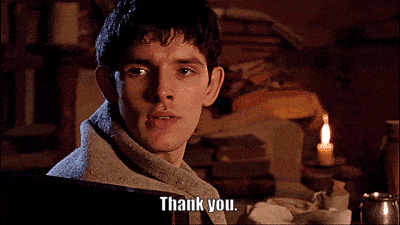
#merlin#god I love this show more than I love myself but they really robbed us of so much#merlin analysis#bbc merlin#merthur#arthur pendragon#ao3#merlin bbc#king arthur#merlin x arthur#the once and future fandom#3 am ramblings#LJ metas#regulusrules metas
142 notes
·
View notes
Text
finished bbc ghosts and i fucking loved it
went to start the us ghosts ? fucking hated it. its just rip off bbc ghosts. no hate to the actors though i just think it would be nice to see a more original story line, yk what i mean
14 notes
·
View notes
Text
God i love chang lee
#we were so robbed by the fact rhat the bbc legally does bot have the rights to use him and grance#grace#ari opinion hour#doctor who
2 notes
·
View notes
Text
another BBC Merlin thing we were robbed of: Arthur becoming used to Merlin's batshit power levels and then holding every other sorcerer he meets to those insanely high standards. what do you mean you can't stop time with your mind or summon lightning to the palm of your hand or blast away entire armies? Merlin can! the assassination attempts don't actually stop once the magic ban is repealed because Arthur continues to piss off a different warlock each week just by being himself
15K notes
·
View notes
Text
[BBC is UK State Media]
Hafiz Naeem ur Rehman of the Jamaat-e-Islami party had been named the victor of the provincial assembly seat PS-129 in the city of Karachi.
But this week he claimed the candidate backed by Imran Khan's PTI party had secured far more votes and that their tally had been reduced.
As such he would relinquish the seat.
"If anyone wants to make us win in an illegitimate manner, we will not be accepting that," Mr Rehman said at a press conference held by his party on Monday.
He added: "Public opinion should be respected, let the winner win, let the loser lose, no one should get anything extra."
He said that while he had received more than 26,000 votes, the independent candidate Saif Bari, backed by the PTI, had received 31,000 votes - but these were presented as 11,000 votes.
Pakistani electoral authorities have denied the allegations. It is unclear who will take up the PS-129 seat now.
15 Feb 24
413 notes
·
View notes
Link
@therapardalis
0 notes
Text
This is maybe an odd thing to put on a good news/reasons for hope blog, but I've also had people tell me that they find this info really, genuinely comforting, so I'm putting it up.
Also, further understanding could do a ton to advance medicine, esp. re: allergies, autoimmune diseases, and depression. You can read more about this at the link.
"More than half of your body is not human, say scientists.
Human cells make up only 43% of the body's total cell count. The rest are microscopic [co-contributors].
Understanding this hidden half of ourselves - our microbiome - is rapidly transforming understanding of diseases from allergy to Parkinson's.
The field is even asking questions of what it means to be "human" and is leading to new innovative treatments as a result.
"They are essential to your health," says Prof Ruth Ley, the director of the department of microbiome science at the Max Planck Institute, "your body isn't just you."
No matter how well you wash, nearly every nook and cranny of your body is covered in microscopic creatures.
This includes bacteria, viruses, fungi and archaea (organisms originally misclassified as bacteria). The greatest concentration of this microscopic life is in the dark murky depths of our oxygen-deprived bowels.
Prof Rob Knight, from University of California San Diego, told the BBC: "You're more microbe than you are human."
Originally it was thought our cells were outnumbered 10 to one.
"That's been refined much closer to one-to-one, so the current estimate is you're about 43% human if you're counting up all the cells," he says.
But genetically we're even more outgunned.
The human genome - the full set of genetic instructions for a human being - is made up of 20,000 instructions called genes.
But add all the genes in our microbiome together and the figure comes out between two and 20 million microbial genes.
Prof Sarkis Mazmanian, a microbiologist from Caltech, argues: "We don't have just one genome, the genes of our microbiome present essentially a second genome which augment the activity of our own.
"What makes us human is, in my opinion, the combination of our own DNA, plus the DNA of our gut microbes."
It would be naive to think we carry around so much microbial material without it interacting or having any effect on our bodies at all.
Science is rapidly uncovering the role the microbiome plays in digestion, regulating the immune system, protecting against disease and manufacturing vital vitamins.
Prof Knight said: "We're finding ways that these tiny creatures totally transform our health in ways we never imagined until recently."
It is a new way of thinking about the microbial world. To date, our relationship with microbes has largely been one of warfare.
-via BBC News, April 10, 2018
#cw germaphobia#germaphobia#bacteria#viruses#fungi#archaea#dna#genome#genetics#biology#human biology#public health#biodiversity#technically it is biodiversity!#increasingly we learn that your own body needs to be biodiverse to even form properly#some of the studies we have on this are literally kinda mindblowing#also microbiotics is the next huge frontier in treating depression and anxiety#(well they're tied for the next huge frontier with psychedelics probably)#good news#arguably lol#hope
388 notes
·
View notes
Text
Rob Wilkins on Colin Murray BBC Radio Five (it's a whole segment about Terry, also there Marc Burrows, Discworld Monthly and more, it's available to listen until May 27th 2023, Terry segment starts about 2:11:00) ❤❤❤
CM: He replied to every single letter. And one of your jobs early doors wasto sift through all of that fan mail. Can you give us a real first person insight into how much Terry Pratchett valued those who bought his books?
Rob: He valued them to the point where if he didn't reply to the mail, he could have easily, easily completed another novel. And I know the value on to him for completing another novel, not just financially, but another novel. Another novel out there. All of those ideas tipped within the pages and he gave that up for the fans to reply to the fan mail. And that really isn't an exaggeration. It wasn't just a few hours here and there replying to the fan mail. He dedicated a lot of time to it. And the fan mail ranged from, I love everything that you do, that's it just an outpouring of love, to really in depth taking apart the words and looking for the deep meanings, some of which were not there. And Terry didn't intend them to be there. But whatever people got from the novels, Terry was all is very respectful in his replies. And he took that incredibly seriously. Yes, he took that job as seriously as he did the VAT returns.
#terry pratchett#gnu terry pratchett#rob wilkins#marc burrows#discworld monthly#colin murray#interview#rob interview#terry being awesome#fan mail#terry answering fan mail
267 notes
·
View notes
Text
bbc robbed us by not having merlin scream and swear at kilgharrah as he flew away
#kilgharrah lowkey be the real villain#mans gave no helpful advice#bbc merlin#merlin#merthur#arthur pendragon#bbcm
101 notes
·
View notes
Text
WILDFLOWER CASES
summary: in which harry and y/n meet because of the harries trying to get free phone cases.
face claim: Devon Carlson
guys I’m sorry for not being active I got lazy all through winter break and once I returned to school I got busy 😭

Liked by harryfan1, yourbestfriend and 565,762 others
yourinstagram nice try harries 😉 all orders were canceled BUT I’m being generous and giving you guys a chance! use the code “HARRY” for 25% off! love you all 💌
view all 1,372 comments
harryfan1 DAMN IT
harryfan2 stop the fact that she’s still doing a discount 😭
harryfan3 she’s too nice..was still looking forward to a free phone case though 🥲
↳ yourinstagram sorry!
gemmastyles stop 😂 harrystyles
↳ harryfan4 GEMMA

Liked by harryfan1, harryfan2 and 12,863 others
hsupdates guys we literally got called out 😭
view all 352 comments
harryfan1 STOP
harryfan2 i could just imagine y/n’s reaction when all the orders started coming through 💀
yourinstagram you guys I’m a harrie too I know stuff 😭
↳ harryfan3 Y/N
harryfan4 LMAOO POOR Y/N

Liked by harryfan1, harryfan2 and 13,863 others
hsupdates Harry talking about y/n and wildflower cases on bbc radio 1!
view all 357 comments
hsupdates “I heard about my fans trying to rob a phone case company from my sister. I talked to y/n the owner and she just laughed about the whole situation.”
hsupdates “yeah I apologized and invited her to one of my shows I felt terrible.”
harryfan1 STOP YOU GUYS
harryfan2 the fact that we made harry apologize for us 😭
harryfan3 HARRY INVITED

Liked by yourbestfriend, harrystyles and 876,873 others
yourinstagram I thank the harries for making my 13 year old self happy. harrystyles
view all 565 comments
harryfan1 I SAW HER SHE WAS SO NICE
paulithepsm everyone she’s my new bestie!!
↳ yourinstagram would forever be grateful for replacing harry with that title
↳ harrystyles heyyy
harrystyles I’m forgiven?
↳ yourinstagram harry…it was a joke I really wasn’t mad I promise 😭
↳ harryfan2 Y/N MESSING WITH HIM
harryfan3 HE WAS SO JUMPY TODAY

Liked by harryfan1, harryfan2 and 1,762 others
hsupdates harry on stage making everyone apologize to y/n!
view all 154 comments
harryfan1 I WAS THERE
↳ harryfan2 what exactly did he say?
↳ harryfan1 basically said “everyone here..well mostly everyone here tried to rob my dear friend y/n..now I want everyone to apologize to her!” “come on..everyone say ‘sorry y/n! “
harryfan3 she was literally laughing and smiling the entire concert harry kept going to where she was
harryfan4 he was literally so smiley tonight

Liked by harryfan1, harryfan2 and 12,864 others
hsupdates harry and y/n seen hugging tonight in NYC!
view all 413 comments
harryfan1 no cause I kind of see it
harryfan2 ITS ALWAYS THE BLURRY PICTURES
harryfan3 THEY’RE SO CUTE
harryfan4 and it all started cause of us so they should totally be thanking us tbh
↳ harryfan5 bestie we almost robbed her company 😭
thank you for reading x
#harry#harry styles#harry styles fake instagram#harry styles fake social media#harry styles one shot#harry styles x reader#harry images#harry x y/n#harry x you#harry imagine#harrys house#harry styles fandom#harry styles fanfiction#harry styles fic#harry update#harry x reader
771 notes
·
View notes
Text
You know what's so special about this scene aside from its destructive irony?
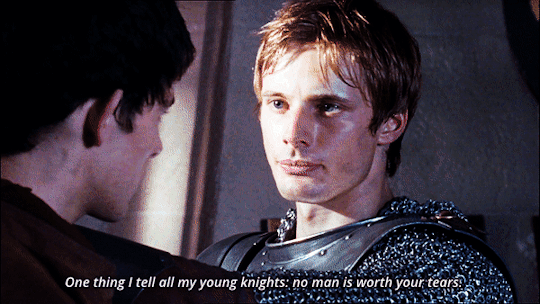
It's that Arthur is addressing Merlin as if he was his knight for real, acknowledging all the times Merlin stood by his side so fearlessly (something we rarely got: thanks bbc writers). At this point, Arthur began to see Merlin as his 𝘬𝘪𝘯 not just his servant, and for a prince who grew up never knowing how to express admiration, he could only voice it in terms of honour.
Which takes us to another point actually; why did Arthur never really knight him? In 3×12? Or when he became king?
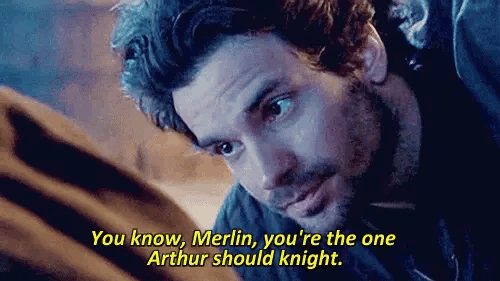
At first I shrugged it as the writers' fault (as with everything) because they were always so inconsistent specifically with Arthur's characterization. But while writing to you I swear my solemn oaths, a different lense just popped in front of my eyes and nested in my soul and brain.
Arthur wanted to protect Merlin from himself.
Let's be real; these two had zero point zero self-saving instincts. They blatantly expressed how they would live and die for each other. They fought on who to do it literally every episode when Arthur was not robbed of making that choice. But elevating Merlin's status would've strained their relationship. How?
Because it labels their unwavering loyalty to each other. It solidifies that they were merely just master-servant, not the earthshaking combination they were. It threatens to erase how Arthur always viewed Merlin as his pillar of strength, because if he knights Merlin he could no longer favour him and his companionship over the rest.
Also, knighting Merlin would have required for Arthur to first accept the fact that it's Merlin's duty to be there with Arthur, not because Merlin wants that any longer. Being given everything on a silver platter from the start only for Merlin to be the only one who denied him this narrative and was real with him, this is something Arthur could never let go of.

Lastly, knighting Merlin would have involved Arthur making peace with the fact that Merlin is OBLIGATED to die for him, and I don't think he could've ever accepted that. Even if he always took Merlin with him everywhere, he did it because he always believed he had Merlin's back and that he'll be there to protect him. This reciprocation of loyalty is so important to Arthur that if he ever knighted Merlin it would completely overthrow their little status quo they created for the two of them only.
So there is no denying the fact that Arthur really always saw strength and bravery in Merlin that surpasses any knight, but he never acted on knighting Merlin because he never wanted to put him in that position.

#merlin#they were in love my lord#they just didn't know how to say it#arthur pendragon#bbc merlin#merlin thoughts#merlin x arthur#merlin bbc#need a knight merlin au fic rec rn#merlinbbc#arthur and merlin#protective arthur#to you i swear my solemn oaths#merlin fic#bbc arthur#the adventures of merlin#merlin emrys#LJ metas#regulusrules metas
514 notes
·
View notes
Note
How about 35: "It's just a headache, I'm fine."
With Tim taking care of Kon after he overused his TTK?
A sliver of light falls across the floor from the hallway as the door starts to open. With the haze of pain fogging up his entire brain, it's barely enough warning for Kon to remember to croak out, "Don't."
Tim stops, hand falling away from the light switch. "Kon?"
Even the idea of lifting his head from the balled-up hoodie he's using as a pillow is agonizing, so Kon opts for the world's most pathetic peace sign. "Sup."
"What are you doing?" Tim slowly closes the door again, at least; the darkness is blessed relief from the stabbing pain behind Kon's eyes at even the faintest light. "Why are you on the floor?"
Kon squeezes his eyes shut, ignoring the way Tim is definitely scrutinizng him in the dimness. His brain is probably doing that BBC Sherlock thing, tagging and analyzing his pained body language, the way he keeps pushing his thumbs into the pressure points just below his eyebrows, the tension in his shoulders. Tim would hate it if he described it as a BBC Sherlock thing, of course; that's why Kon keeps doing it.
"It's just a headache." His voice is a little too breathy from pain to be dismissive, but he tries. "I'm fine."
"You could've gotten in the bed, at least." Tim sinks down next to him on the rug. "What caused it? Are you hurt?"
"Fuck, Rob, not so loud," Kon groans, rubbing his temples. "Ugh. S'nothing. Overdid the TTK holding all those skyscrapers up for so long this afternoon, that's all. And bed sounded too hot."
Tim is quiet for a moment. "You never told us that gives you migraines."
"Never seemed to matter." Another wave of agony throbs behind his eyes, lancing straight through the deepest parts of his skull, and Kon swallows down a whimper. "It, ugh, it happened way more when I was freshly hatched. Now s'not all that... frequent."
"You being in pain always matters to me," Tim says softly. He lets out a breath, quiet even in the silence of the room, and shifts his weight slightly; Kon can hear the rustle of his clothes. "...Can I get you something? Is there anything—you came to my room for a reason, right? What do you need me to do?"
There's an undercurrent of desperation in his voice, barely there, but readily apparent to anyone who knows him even half as well as Kon does. He hates being helpless, hates seeing anyone he loves in pain, hates not being able to fix it. Kon smiles wanly, opening his eyes to look up at him; it doesn't hurt, not too bad, since the room is so dark.
"I'm in your room 'cuz you have the best blackout curtains in the whole Tower," he says honestly; even in this state, he doesn't miss the way Tim's shoulders droop slightly. "But... if you could get me an ice pack—no, two—that would... that'd be pretty rad."
Tim's on his feet before Kon even finishes his request. "Yeah, of course, I have plenty—" and then he's off like a shot to the mini-fridge in the corner, pawing through the freezer in the dark like a raccoon. Kon hides a wince; his ears are too sensitive for even the slight crinkling and cracking of the ice, and nausea churns in his gut.
But then Tim's back, and in his hands are two blessedly cold packs, wrapped in cloth to make them easier to use.
"God, Rob, I could kiss you," Kon tells him, pressing one to the back of his neck. It's instant, if not total, relief, and he lets out a low moan as the agony spearing through his temples starts to ebb out into the chill. After a second, he presses the second one over his eyes. Fuck, that's so much better...
"Do you need anything else?" Tim asks, hesitating. "I can get you some tea, or a blanket—no, you said it's too hot, um—do you want a sleep mask? Or I can—"
Kon reaches up, grabs one of his hands, and hauls him back down to sit on the rug. It takes a mildly herculean amount of effort, but he lifts his head next, scoots over, and places it on Tim's thigh, so that he can tuck his face (and ice pack) into his stomach. "Shut up," he mumbles, "and just... stay."
If it's too cold, or uncomfortable, Tim makes no indication. He just lets out a soft, "Oh," and then, to Kon's delight, threads his fingers tenderly into his hair. "...Is this okay?"
If his touch was a little more direct, if his gentle caresses were any faster, it'd be too much. But as it is, it's helping, and if he stops anytime soon, Kon might cry.
"Better'n okay," he answers, and despite his migraine, he smiles slightly against Tim's shirt.
#necer0s#rimi writes#timkon#you sent this one and i went oh FUCK YEAH#because of how the reason im in agony soup currently is! chronic migraines! for which i am being denied my meds >:( but HEY#PERFECT PROMPT for me to cope with B)#tim#kon
122 notes
·
View notes
Text
DAY 5670
Jalsa, Mumbai Aug 26/27, 2023 Sat/Sun 1:19 AM
Birthday - EF - Rohit Kumar Bhutoria
Sunday, 27 August .. wishes and more from the entire Ef family .. 🚩
In time at last .. or well sort of .. an effort made to be in no disappointment for the Ef .. and to be able to bring back the discipline that has ever existed and remains a part the primary Ef ..
the run is customary now .. unless there is a need to alternate it with either someone that has 'rolled over' and has been incapable of any physical activity ..
but before all that physical bit .. a bit of the self aggrandisement in the HELLO mag about the 100 influentials of INDIA :

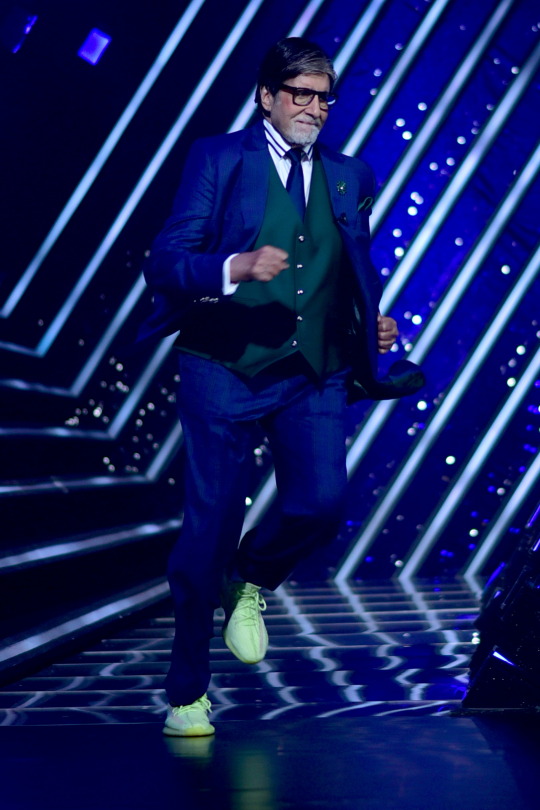
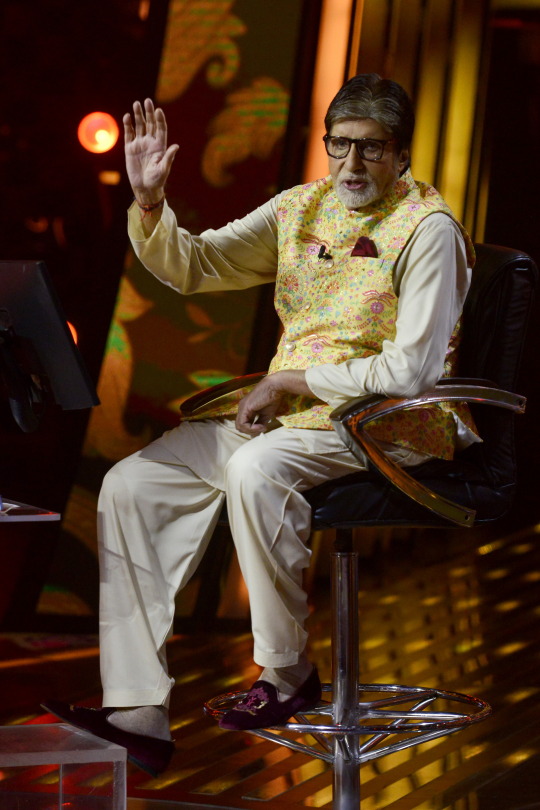
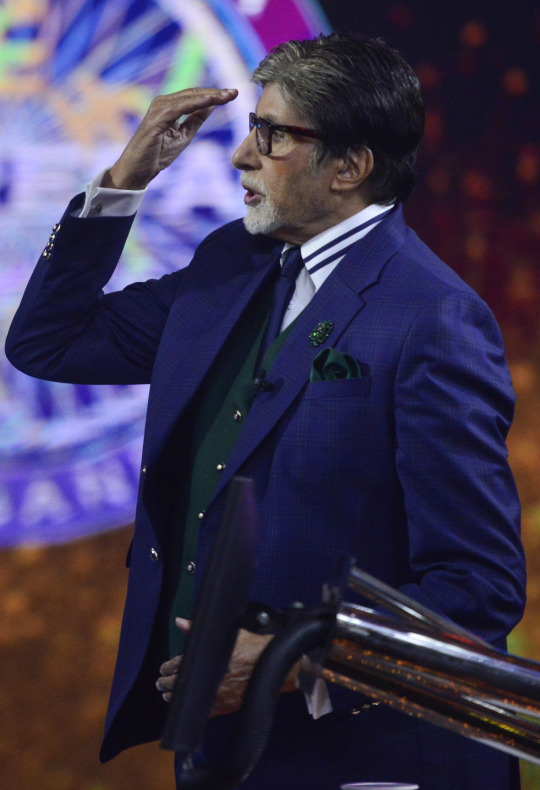
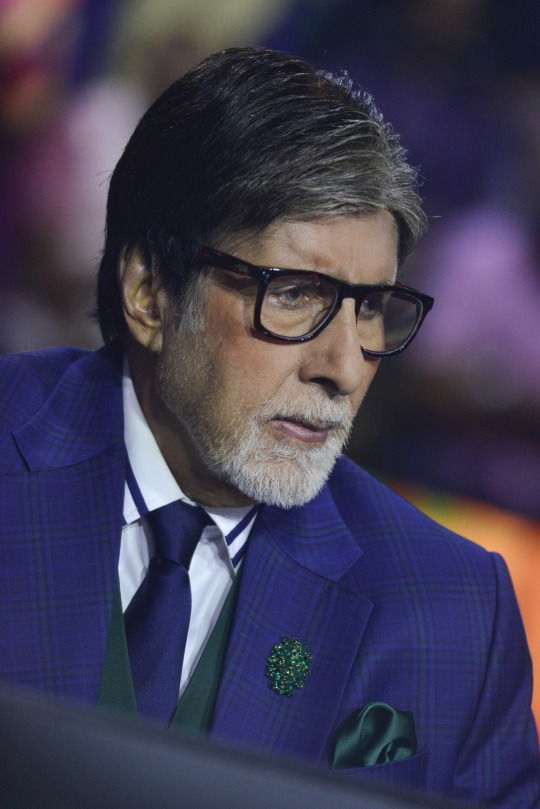

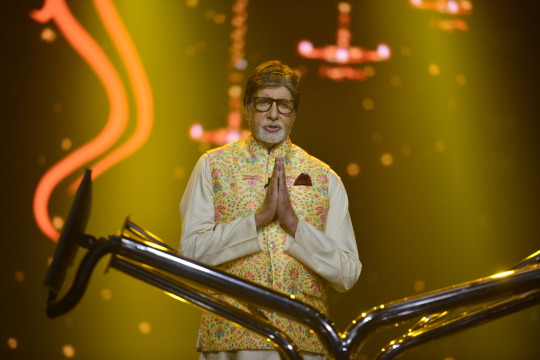
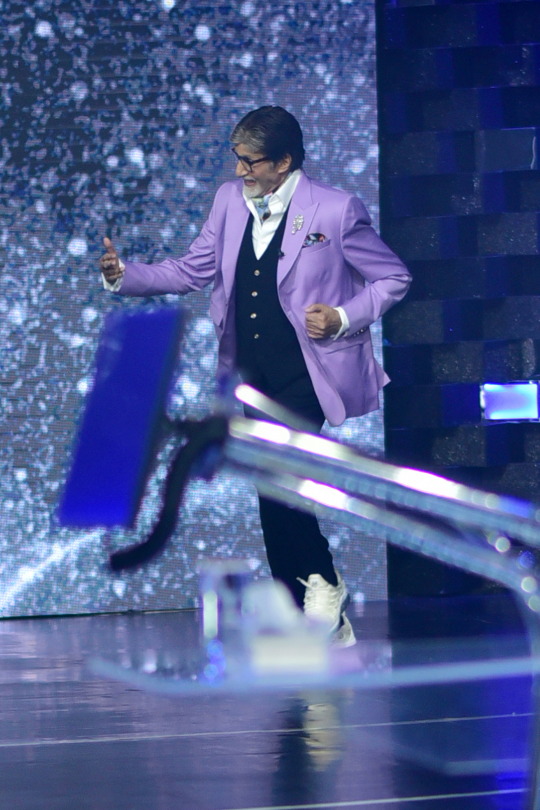
.. and then we have a brilliant retort from Anand Mahindra to the BBC, questioning our Chandrayaan 3 .. !!
🤣🤣🤣
Really?? The truth is that, in large part, our poverty was a result of decades of colonial rule which systematically plundered the wealth of an entire subcontinent. Yet the most valuable possession we were robbed of was not the Kohinoor Diamond but our pride & belief in our own capabilities. Because the goal of colonisation—its most insidious impact—is to convince its victims of their inferiority. Which is why investing in BOTH toilets AND space exploration is not a contradiction. Sir, what going to the moon does for us is that it helps restore our pride & self-confidence. It creates belief in progress through science. It gives us the aspiration to lift ourselves out of poverty. The greatest poverty is the poverty of aspiration…
Quote
Megh Updates 🚨™
@MeghUpdates
·
Aug 23
Listen to what BBC had to say about #Chandrayaan3
Should India which lacks in Infrastructure and has extreme poverty, Should they be spending this much amount of money on a space program
But what is quite brilliant is also a Hindi retort from a colleague :
वो देश, जिसके संग्रहालयों का खज़ाना, केवल दुनिया से लूटे गए मूल्यवान वस्तुओं से भरा है,
वो देश, जो मसाले की खोज में भारत आया, उसे लूटा, लोगों को मानव निर्मित अकाल में झोंका और आज भी जिसके खानों से मसाले गायब हैं,
वो देश, जिसे अपने ही इजाद किए खेल का विश्व कप जीतने में बरसों लग गए
वो देश, जिसका सूरज कभी अस्त नहीं होता था, पर आज भी अपने अंतरिक्ष संस्थान का नाम दुनिया तक नहीं पहुंचा पाया है,
आज हमें ज्ञान दे रहा है?
हम भारतीयों ने दुनिया को अद्भुत संरचनाएं दीं, कला दी और भारतीय दर्शन से संस्कृतियों को प्रभावित किया और आज भी कर रहे हैं
हम भारतीयों ने अपने मसालों और अपनी पाक शास्त्र का परचम दुनिया के कोने कोने में लहराया है
हमने दूसरों के इजाद किए खेल न केवल सीखे, पर उनमें महारत भी प्राप्त की और धुरंधरों को धूल चटाई है
हमने न केवल चांद और तारों पर कविताएं लिखी, न केवल उनको देखकर सपने बुने, परंतु चांद पर भारतीय तिरंगा लहराया और अंतरिक्ष पर निरंतर और सतत जीत की ओर अग्रसर हैं।
जो कभी हम पर राज किया करते थे, उन अंग्रेज़ों की ईर्ष्या को यह चेतावनी है - यह आग तुम्हें बस जलाएगी पर इसी आग से हम अंतरिक्ष के उस छोर पर पहुंचेंगे जहां से भारत का सूरज कभी अस्त नहीं होगा।
🇮🇳
WILL THE HINDI /ENGLISH LITERATE PLEASE TRANSLATE
🇮🇳
but before all that .. a bit of the self aggrandisement in the HELLO mag about the 100 influentials of INDIA :
and the music delivers its most colourful night .. it is the divinity of the hour that brings the creativity to the fore .. and in its brilliance dwells the ultimate ..

when the 'SA 🎶' - the first note is hit .. its vibration exudes all that is in the positive eons within .. the superiority of its scale is beyond measure .. actually measure is truly the wrong word .. vibrations of the gravity of a 'note' cannot be measured .. Richter scale and all ..
( and mr Googlé does not have Richter in its information .. process )
we be in blessings beyond to be as in to be ..

Amitabh Bachchan
113 notes
·
View notes
Note
Are you, perchance, a 2013 BBC's Sherlock veteran
No particular reason I'm asking
I watched it and I think I probably reblogged a few things back in the day because I had mutuals who were into it. But I don't recall ever really feeling like I was in the fandom myself.
I'd guess that you're asking because you've recently read my Good Omens essay and your next question is about whether I was a supporter of The Johnlock Conspiracy, and the answer is a hard nah. At least to me personally, all the textual and meta-textual evidence made it abundantly clear, even a decade ago, that the show was not only inhospitable to queer fans, but actively and deliberately hostile towards them (one recalls that utterly mean-spirited depiction of what Steven Moffat thinks a "fangirl" looks and sounds like, as well as more than one occasion when he and others involved with the show mocked fans/fandom/fanfiction in interviews, on camera, with their actual human mouths). I do vaguely remember coming across people on tumblr in those days who were convinced that there was something else going on, that somehow Moffat was going to suddenly change his tune and start loving them back the way that they loved his show, that they would be rewarded for their faith by having their ship made canon, but that seemed extraordinarily unrealistic to me and not based on any concrete facts.
Now, don't get me wrong -- wishful thinking can be really fun, and you're not hurting anyone by hoping for the best and daydreaming about a happy ending. That's just basic human nature. But when someone shows you what kind of person they truly are, pay attention. Balance dreaming with prudence, and don't put all your eggs in one basket--or, rather, don't pin all your hopes on one stranger's artistic decisions.
Part of me wants to say that Steven Moffat is one of several significant contributors responsible for the deep-rooted media trauma that still afflicts thousands of fans today (consider how so many people watching the first season of Our Flag Means Death as it aired were utterly convinced that it was going to queerbait them and exploit their sincere, heartfelt desire for a queer love story on screen, the same way that nearly every other show had done already. So many people met that glimmer of hope with cynicism and pessimism, because when you've been not just disappointed but outright punished for wanting something, the natural trauma-response is to assume that you're not going to get it until you're proven wrong, because that's the only way you can protect your bruised, exhausted heart.
It is true that Moffat's cruelty to the fans of his show contributed to our collective media trauma. However, it is not the only thing that has done so: Particularly in America, we are in the midst of a literacy crisis. Schools have been failing us for more than two decades: They have increasingly failed to teach nuanced reading comprehension and to adequately equip young people with robust and agile critical thinking skills, and this means that an entire generation has been robbed of the tools that would help them to protect themselves from the psychic damage of media trauma before it happens. Moreover, it means that many people now insist on looking to canon to "legitimize" their ships, as if their own interest and enthusiasm was not sufficient. Instead of feeling empowered to reimagine the stories handed to us in order to suit our personal needs, we give away our power into the hands of strangers who do not feel any ethical responsibility to care for their audience as if the audience is a guest in their home. And thus, we get hurt. Media trauma is real, and it sucks.
To return to your original question, no, I don't consider myself a veteran of BBC Sherlock, because I wandered through town, saw that it wasn't worth the fight, and left before the war started.
Remember: In literary criticism and in science, you don't do good work by cherry-picking evidence that supports your pet theory; you do good work by assembling all the data and asking what theory would unify them into a cohesive whole. And if you're really good, you make the effort to be skeptical and look for evidence that might disprove your theory, and you invite others to check your math, because at the end of the day, you are a beautiful, imperfect human and sometimes you make mistakes.
119 notes
·
View notes
Note
as a huge fan of the original ACD canon, I desperately want to hear your elaboration about why you don't like BBC's Sherlock :D
hi OP I hope you're ready for a monster essay in response because that's what I ended up with!
For ease of reading I've divided up my answer into four sections: 1) explaining Arthur Conan Doyle's Sherlock with historical context, 2) analyzing BBC Sherlock/Moffat's Sherlock using a cross-section of Watsonian and Doylist techniques and sheer spite, 3) my thoughts on Johnlock, 4) comparing & contrasting Doyle's Sherlock with Moffat's Sherlock. Disclaimer: I'm not a historian, although I do I have some understanding of the history of detective fiction. Mostly I'm just an avid reader/fan.
Part I: Original Sherlock
To start with! I will talk about the characterization of Arthur Conan Doyle's Sherlock Holmes. Here's something which people who have never read the stories don't seem to know: Sherlock is kind.
He's not particularly nice, I'll give you that. He tends to think he's the smartest person in the room, and you know what? He almost always is. He has plenty of dry and sarcastic comments for the London police, for clients who don't bring any evidence, etc. But he goes out of his way to be kind. My favorite example of this is the Boscombe Valley Mystery.
The Boscombe Valley Mystery is far from my favorite Sherlock story in terms of mystery-solving, but one of the best in terms of characterizing Sherlock. To summarize: two wealthy, widower landowners, John and Charles, are next-door neighbors with one kid each–John, a daughter named Alice and Charles, a son named James.
Sherlock gets called in when Charles is found murdered, and everyone suspects James of doing it. Of course, it's not that easy. It turns out that twenty years ago, John was a highway robber in Australia, and he robbed Charles but left him alive. John then left the life of crime, started a family and settled in England a wealthy man. Then Charles moved in next door, recognized John, and proceeded to blackmail him for money, land, etc. This escalated until eventually Charles demanded Alice's hand in marriage for his son James. John refuses, and eventually kills Charles to protect Alice and to free himself from Charles' blackmailing/tyranny.
(The problem is that James is actually a decent person, and he and Alice are secretly in love, but there's also a bar maid involved and it's complicated and not relevant. Anyways).
Of course, Sherlock being Sherlock, he figures out that John is the murderer. But here's the thing: he defends John. He doesn't turn John (or his signed confession) over to the authorities. In fact, Sherlock goes to court to protect James by arguing that there's not enough evidence to find him guilty. Sherlock catches a murderer, goes "you know what? He was kind of right tho" and looks away.
Do you understand how radical this is for Victorian England? This is the 1890s. People still believe in God over gravity. The idea that a criminal isn't a criminal for life? That a highway robber can turn over a new leaf? That a murderer can be in the right? [Now would be a good time for a source] Like this is so new, I can't think of a way to translate it to the 21st century.
And it's key to who Sherlock is. He puts his reputation on the line for this case. He says that he didn't manage to solve this case, even though he did. His professional pride and reputation is worth less to him than protecting John, a MURDERER, and James, his son who admittedly is a nice guy whose worst crime is making dumb decisions in college (see: the bar maid).
Because here's the thing about Sherlock's "professional pride:" it's not "I'm the smartest person" or "I'm always right." Sherlock genuinely believes in his deduction method, not as a superpower which he alone possesses, but as a tool which anyone can use if they apply themselves. Which brings me to my second example: Irene Adler.
If you (general audience) only know Irene Adler from BBC Sherlock, I'm gonna ask you to forget all of that right now. Arthur Conan Doyle's Irene Adler is an American opera singer who used to be in a relationship with the future King of Bohemia. The king asks for Sherlock's help retrieving an incriminating photograph that Irene Adler has threatened to send to the king's future wife (a Scandinavian princess) and her family. (Irene Adler is currently in England, getting married to some guy named Norton).
Sherlock promptly gets outsmarted by Irene Adler. She leaves for America with Norton and the photograph, though she promises not to use it against the King of Bohemia, and keeps her promise. Because here's the thing about Irene Adler: she's not a criminal. She's not a bad guy in any way. She doesn't blackmail the king. She had a fling with the King of Bohemia, eventually moved on with her life and married Norton. When Sherlock came sniffing around for her private property, which she was under no obligation to return/give up, she got the hell out of England.
Despite this, Irene Adler is often framed not only as a criminal but also as Sherlock's love interest in adaptations. (And I'm not even talking about BBC Sherlock, trust me, we'll get to that). I think this is due to a fundamental failure or refusal to understand the nature of Sherlock's interest in Irene Adler. He explicitly states that he is not romantically attracted to her. (And neither is she to him). He is impressed by her intellect. It is rare enough for Sherlock to be outsmarted; I think Irene Adler may be the only example in the original stories where the person/group who outsmarted Sherlock was not a career criminal or other type of evil-doer (such as the KKK, in The Five Orange Pips, yes that KKK).
For all intents and purposes, Irene Adler is an ordinary woman, trying to do an ordinary thing (get married to Some Guy), who just so happens to get one over Sherlock in a case where he is arguably in the wrong. That is what makes her so special. Sherlock believes that his deduction methods can be implemented by anybody, but here's somebody, actually implementing them! And she was trained as an opera singer, not as a detective or some such field! And she's not using it to systematically murder or blackmail or anything else, she just wants to live her best life away from this Bohemian nonsense!
Sherlock is excited when someone outsmarts him. And it is so rare for there to be no horrific crime taking away from that excitement.
In summary: Sherlock Holmes is a perfectly well-mannered English gentleman (the social class, not polite descriptor) with shockingly progressive morals for the 1890s, a need for brain puzzles and adventures, and a non-debilitating addiction to crack cocaine.
Some other notes about original Sherlock before I move on to the next section:
Sherlock indirectly caused someone's death in The Adventure of the Speckled Band, and does not feel at all broken up about it. Honestly? I respect that.
Doyle was not perfect. Irene Adler was smart "for her sex." All of the stories mentioned above contain examples of foreigners importing struggles to England. Violent Americans from Five Orange Pips, armed robberies from Australia in Boscombe Valley, loose(?) Bohemians(???) in A Scandal in Bohemia, a mercenary and violent "doctor" from Calcutta (though English by birth) in Speckled Band, etc. I could go on. And I am sure that he made some claims later proved to be scientifically inaccurate.
Aside from Doyle's biases, the Sherlock Holmes stories are also prone to the same real-world changes as any other famous series. Doyle famously killed off Sherlock only to bring him back due to the public outrage. The many, many short stories vary quite a bit in quality, and a little in consistency. Sometimes you just have to throw your hands up and go with the Doylist (heh) reading. We'll get back to this.
Sherlock would not be caught dead in Buckingham Palace wearing only a bedsheet. He often disguises himself in the short stories, as a grandfatherly figure, faking a Cockney accent, as all a manner of (typically older, and therefore less threatening) men. Part of his strength as a detective is his awareness of social circles and the workings of society. He uses it to his advantage, he doesn't provoke public scandal.
He's a private person. He didn't ask to be famous, or to be memorialized as a genius, and again, he doesn't go around looking for adoration or outrage.
Sherlock scorns romance, yes, but not in an internalized aphobia, "I'm suppressing my emotions/desire for the sake of The Case" kind of way, but in an "I'm the only reasonable person here, the rest of you are just weird" kind of way. We'll get back to that one.
Sherlock did have Moods. He also did drugs. But drugs didn't have the social context of drugs now.
Sherlock was superhumanly strong, for no particular reason? There's one story where someone threatens him (in his own flat, no less!) and he remains very polite and unflustered by it. Once the man leaves, he picks up the metal poker that the man bent and straightens it.
Honestly the disguises and the hand-to-hand combat made original Sherlock so OP. I'm not projecting modern values onto old characters, you are. Send Tweet.
Doyle was a spiritualist?!?!?! Like a committed believer in ghosts. Like so committed it ruined his friendship with Houdini. Yes, Harry Houdini. This is not relevant, I'm just impressed that an author so spiritual could write a character so famously and firmly rational.
Okay that's the important bits for original Sherlock. I could easily double the length of that section, but I hope it's clear enough now why I consider original Sherlock to be Very Cool and Interesting.
Part II: BBC Sherlock
Boy oh boy oh boy oh boy. Where to start with this one. Well, here's hbomberguy's 2-hour video essay on why BBC Sherlock is trash, to start. It's been a long time since I watched it but I recall it focusing more on its creator, Steven Moffat (and what that man did to Doctor Who as well, God sometimes I just lay awake thinking about every precious thing Moffat was allowed to put his slimy hands on). So I will attempt to focus on a few key things I don't remember hearing in that video essay.
First: The Trope of the Autistic Genius. I'm sure you (general audience) have seen this in some form of media: a socially awkward or unaware character, perhaps outright on the autism spectrum, perhaps just Weird™ who is a genius in a particular field. It's related to the Idiot Savant trope, thanks TV tropes, and portrayals range from a cute fictional romance with an autistic lawyer in Extraordinary Attorney Woo to the somewhat real-to-life story of John Nash, a real mathematician who made incredible contributions to the field of economics and also had incredibly difficult personal relationships due to his schizophrenia.
For some reason, Moffat decided to use this trope for Sherlock Holmes. I say "some reason" but it's pretty clear why: Sherlock is a genius. And there's a long tradition of "genius as a curse" characters where their intelligence comes at a cost: their ease of relationships with other people. Sometimes this is an explicit curse where the character traded power/intelligence/money etc. for the ability to feel (romantic) love (see: Howl's Moving Castle the movie). For the autistic genius, usually the price of their ability to grasp concepts (usually math or some type of science) beyond the understanding of Mere Mortals is their ability to understand people and social cues.
The thing is, the way Moffat does this with Sherlock makes no damn sense. He's a detective. His whole ass job is to understand social cues, human behavior, motivations and generally what makes people tick. There's probably a good way to make Sherlock autistic. However, the way Moffat does it creates this inherent contradiction, where Sherlock swings wildly from totally missing social cues to perfectly understanding people's desire and motivations. Make it make sense. Make up your mind. Is your Sherlock a tortured genius who cannot understand or relate to normal Molly Hooper, or is he a brilliant detective who Gets how people work? You (Moffat) can't have it both ways. It doesn't make any sense.
Second: the Reading People as Superpower thing. Moffat fully subscribes to the idea that you (general) can just look at somebody and deduce their whole backstory. This one pisses me off personally because it leaks to real life all the damn time. The phone charger is probably the most infamous example of why this doesn't work. (Fun fact, if the area around your phone charger is scratched from you repeatedly failing to plug it in, that doesn't mean you are an alcoholic!)
But it occurs both in BBC Sherlock and IRL. Usually IRL people are nice enough to only say out loud something that they think is positive. But here's the thing: they're almost never right. I've had nice little old ladies tell me "I can see that you are XYZ type of person" in the most well-meaning of ways and be completely off the mark. Not a single person who has guessed my race (out loud) has gotten it right. But I'm not just saying "don't make assumptions for the big things like race/sexuality/religion etc." I'm saying, we all make those assumptions when we first meet someone, whether we like it or not. But we have a choice whether to act on those assumptions. Reading people is not a fun thing smart people do in media, it's a common thing all of us do despite not having a higher chance of being correct than Moffat was with the phone charger thing.
The "you can read into anything because there's secret meanings behind everything" that BBC Sherlock encouraged led to one of the funniest and most pathetic phenomena in fandom: The Secret Good Sherlock finale. There's a good 1.5 hour video essay about it and how a portion of BBC Sherlock fans deluded themselves into thinking that the horrible, horrible ending of BBC Sherlock couldn't be real, and that there was a real finale coming if you just followed the clues where Johnlock was canon (more on that later). Because they just couldn't accept that this show which portrayed itself as so clever and Moffat as a 4D chess-master always fifteen steps ahead, was just Not Good.
(Side note: I missed all of the BBC Sherlock fandom experience despite watching the show, because I watched the show with my family. We all knew Doyle, you see; my father read those stories to my siblings and I as bedtime stories when I was little. I still remember his reading cadence and the character voices that he did. So when we heard about BBC Sherlock, we thought "hey, we know that guy!" and settled in to watch it as a family. I distinctly remember thinking that it was…fine? Like, just okay. But nothing about it was better than the original, and I would how much worse it was years later).
Third: Sherlock is just weirdly mean? All the time? In BBC Sherlock. I can only assume this is some sort of power trip fantasy, where the author self-insert (we'll come back to that) Sherlock is the most perfect boy who is always right and correct and so much smarter than everyone else that he just doesn't have to put up with their stupidity.
Like many of the gripes I have with BBC Sherlock, what I hate the most is how Moffat's portrayal seems to have influenced the general public's perception of who Sherlock is. Would this type of Victorian Sherlock exist without the type of arrogant monologuing that Moffat favored? I mean, maybe. I can't prove it. I just feel like they're related. (To be clear, I like Sherlock in that scene. I just think it's inconsistent with original Sherlock's interactions with the police, but to be fair, original Sherlock didn't have a little sister in jail for murder).
Fourth, IRENE ADLER MY BELOVED I WILL AVENGE YOU ONE DAY I SWEAR.
So Steven Moffat cannot for the life of him write a female character I'd feel bad for him if it wasn't so painful to watch in Doctor Who, Sherlock, and basically everything else he's ever done. Moffat, like many adaptors of Sherlock, was dead-set on making Irene Adler a femme fatale. She's not only a criminal, she's also sexy and very weirdly interested in Sherlock (again, the author self-insert strikes again. All the women must be interested in me I mean my most perfect boy!)
I am far from the only person who noticed this. Here's a Reddit post which calls Irene Adler out for basically sexually harassing BBC Sherlock throughout that episode. I don't disagree with the substance but I disagree with the reading. That post takes a Watsonian approach: Irene Adler repeatedly expresses sexual interest in Sherlock, who does not reciprocate. Despite this, the characters around him assume he reciprocates and at the end of the episode his brother Mycroft blames his nonexistent/unconfirmed interest in Irene Adler as the reason why she got one over him. When he does his dramatic "I am Sherlocked" reveal, he is saying 1) that he's really not interested, 2) that she didn't get one over him, and 3) that her emotional/sexual investment(?) in him is why she lost.
Here's the Doylist reading: Moffat's fantasy is the sexiest/coolest woman (Irene Adler) chasing after his author self-insert (Sherlock) who remains coolly aloof despite her advances, because he's cool. Everyone else's assertions that he's secretly interested stems from society's need to smash two dolls together and say "now kith" regardless of what the dolls in question are saying. At the end of the episode Sherlock makes the points that I made above, yes, but Moffat's also reaffirming that no one is allowed to outsmart his most special, most perfect boy (/self-insert), not even the character that CANONICALLY OUTSMARTED HIM. (Although to reiterate: original Irene Adler was not a criminal, did not blackmail anyone, and was not interested in Sherlock. Also she was American lmao).
There's one key scene (which I loathe with all my heart) that demonstrates how Moffat sees Irene Adler, and that's her introduction scene. Why? Because she walks in naked. Why? Because that way Sherlock cAn'T rEaD hEr. (Which brings us back to point #2, Reading People as Superpower).
This is mind-bogglingly, mind-bafflingly stupid. If Irene Adler really wanted Sherlock to """"not be able to read her"""" she should've just stolen the clothes of the first woman she saw that was her size. Or men's clothes, not her size, and not hers. That way any traces of character left on the clothes (i.e. coffee stains, hems worn down from constant worrying, cat fur, etc.) would've belonged to someone else, thus throwing Sherlock off even more.
And it's not like the body lacks marks unique to the person. Jesus Christ. Surgeries leave scars, as do accidents and injuries. Birthmarks, bite marks, stretch marks, scar marks, people drawing reminders or hearts on themselves with sharpies, tattoos, the list goes on and on and on and on and on. Bodies are not blank canvases.
There is no good Watsonian reading for why Irene Adler walks in naked. There is only a Doylist reading: Moffat thought it'd be hot for his femme fatale to meet his self-insert butt-ass naked. That is why I disagree with the Reddit post I linked which I assume you (general audience) read. Irene Adler's actions don't make sense when framed as "she's smart but obsessed with Sherlock despite never having met him before." I mean, it's possible? But it makes her far less intelligent from the very start than the show tells you she is. Her actions only make sense when framed as "Moffat thought it would be hot." (Dear Moffat: it's not).
Fifth, and finally: The Big Bad. This is not Moffat-specific: the need to have one main villain, to have everything in a series building to the big showdown with the Big Bad exists all over the place. Episodes are getting longer and longer while seasons get shorter and shorter. Sherlock, originally a series of short stories (with some long-form stories, my favorites <3 thrown in the mix), is perfect for the 30-45 minute 12-16 episode seasons. Instead it got…BBC Sherlock. With Moriarty as The Big Bad. Who Irene Adler is working for? For some reason? And has come back to life maybe? It's dumb. Bring back my case-of-the-week type stories :(
There are plenty more gripes I could list about BBC Sherlock, but those are the main ones. This is already getting much longer than I intended, so onto part three: my thoughts on Johnlock.
Part III: Do I ship Johnlock?
No.
Part IV: Just kidding!
Well, I don't not ship them. A friend asked me recently if I shipped them, and I thought about it for a minute and eventually said: "Honestly? I am so thoroughly neutral about them."
You could convince me of Johnlock. However, I remain unconvinced by the vast majority, if not all, of BBC Johnlock. It essentially feels like a derivative form of a derivative and vastly inferior form of the real Sherlock Holmes and John Watson. Basically: the Johnlock that you (general BBC Johnlock shipper) are a fan of are just two people who happen to share names with the characters I know as the great detective Sherlock Holmes and the good doctor John Watson. But they're not actually Holmes and Watson, thus what you're shipping isn't even "real" Johnlock.
There are two parts of Johnlock's dynamic that I think are missing from the broader conversation (which is not to say that they're not talked about, just that they should be talked about more).
First, we're back to Watsonian vs Doylist readings, this time with the origin of the term in mind! (My literary analyst heart cackles in delight). You see, the Doylist reason for Watson's existence is to chronicle Sherlock's adventures. Genius characters are near-impossible to write from their perspective. The mystery and ingenuity vastly improves when explained by Sherlock to Watson after the fact. We, the audience, need John Watson to exist for the stories to be enjoyable. He is a plot device.
Now, I'm not saying that because John Watson exists for plot purposes, we can't consider the emotional connection between him and his flatmate. The Watsonian reading, according to Johnlock shippers, is that Sherlock and John live together because they are gayandinlove.
Which brings me to part two of their dynamic: the QPR-ness of it all. I think there's a lack of conversation about anything between "straight" and "gayandinlove" when there's so much gray area to discuss. Johnlock, in both the original and in my preferred version, strike me as a very comfortable queer-platonic relationship. It feels wrong for Sherlock to have a wife, husband, boyfriend, lover, etc. because it is so contradictory to who Sherlock is. I just can't picture him engaging in any modern or Victorian-era dating or courtship ritual. And not just because he explicitly derides and expresses his lack of interest in romance in the originals. After all, it's impossible to separate Sherlock's bachelorhood from the part where it was obviously impossible for him to marry a man in the 1890s; the institution of marriage simply didn't mean then what it does now. He certainly never and would never speak about sex, or his sexual preferences. I am sure they were assumed to be Good And Heterosexual. Which isn't to say that Victorian times were less queer than modern times. Doyle's contemporary, the Irish poet Oscar Wilde (1854-1900) was very famously (/infamously) gay. The author Rudyard Kipling (1865-1936) is also rumored to have cheated on his wife with her brother/his publisher.
No, I've always seen Sherlock as aroace just because…he comes across as very aroace? I don't know how to explain it other than "read it and tell me I'm wrong." And Johnlock always came across as very comfortable to me. Like there was a total lack of yearning. Don't get me wrong, I totally understand projecting into characters, so if you (general Johnlock shipper) add yearning to your Johnlock I'm not criticizing you. (And no, I'm not getting into Mary Morstan and her differing characterizations because then we'd really be here all day).
I also don't subscribe to the idea that Sherlock is aromantic because of his genius, his detective career, or his suppression of natural instincts in favor of the aforementioned reasons. It's aphobic and it's not how Sherlock works. The man is not judging himself for his lack of interest, he's judging you (aphobe) for thinking there's some deeper cause or something wrong with him for not being interested in romance.
And I can't fathom him engaging in sex except as an intellectual exercise. ¯\_(ツ)_/¯
I always thought BBC Sherlock was so weird about the concept of being gay. I mean, there were gay jokes galore but They Were Not Gay and Moriarty was gay-coded but John was definitely not into Sherlock and Sherlock was not gay but he wasn't into Irene Adler either, but that didn't make him asexual either, just…a genius?? Apparently??? Like he's straight but he's also too smart to be fooled by Irene Adler's wily wily feminine wiles. Like Straight 2.0 where they make you pay more for the same product with ads this time.
Which finally brings me to the last section: comparing original Sherlock and BBC Sherlock!
Part IV: We all know where this is going
Honestly most of this section has written itself already.
Original Sherlock Holmes was remarkably progressive for its times; BBC Sherlock was somehow less progressive despite being made centuries later. Its portrayal of women was somehow worse than the thing written in the 1890s. I'm a big believer in judging things with historical and social context in mind, which makes original Sherlock all the more astounding, and BBC Sherlock all the more regressive.
Original Sherlock Holmes was an excitable bloodhound who believed in his rational method and was genuinely delighted when he met his match. He was irritable and moody and indirectly killed a man with no remorse. BBC Sherlock is an arrogant, self-obsessed jerk who constantly belittled and mocked the intelligence and achievements of others. He, despite not understanding people, popularized the "you wear that sweater to remind you of your dead mother. You feel lost without her and are seeking a substitute in Macys Mother's Day line products" type of armchair psychoanalysis.
Original Sherlock loves a good case but sees his clients as human, at the end of the day. BBC Sherlock cannot stand to be wrong.
Original Sherlock and John are companions, comfortably; not normal/regular friends, though I would never say "more" than friends. Maybe, in a modern era, they'd be romantic partners of some sort, maybe not; I don't really care. BBC Sherlock and John are…friends but you gotta believe Moffat when he tells you that they are Definitely Not Gay. Like Not At All. Not Even A Little.
In conclusion: I loathe BBC Sherlock with all my heart. It is an insult to the legacy of Sherlock Holmes. A regression in the face of how radical Arthur Conan Doyle was. i genuinely feel sorry for all the people who have watched that show but never read the originals because they have no idea who Sherlock is, and original Sherlock is so damn cool.
#ask#sherlock holmes#bbc sherlock#sherlock fandom#arthur conan doyle#apologies this has not been proofread at all#essay#This is probably not what you (indigotigress7) expected as an answer#Context for you (general reader) is that I posted an Enola Holmes fic two days ago and whined about BBC Sherlock in the author's notes#i hope this is coherent but i know in my soul it is not
16 notes
·
View notes
Note
Did we ever have a confirmation on whether Kamiki actually had a hand in Ai's death or was it just Aqua's speculation? (Kamiki definitely killed at least one other successful actress so... Still a murderer.) 15YL spending that much time to make us empathize with him made me wonder if Aqua changed his mind during his investigation. His thoughts are pretty much hidden from us, after all.
Another question that I've been wondering is that, do we know if Kamiki himself is successful as an actor at all? The fact that very little people seem to recognise him from a production made him very mystical as a being but not much sense for the entertainment industry since he's still there and not, retired. It reminded me of Taiki's description of his legal father who was unsuccessful as an actor and find fulfillment in sleeping with successful actresses... Just thought it would be hilarious (in a very dark way) that Kamiki is unsuccessful and taking it out on successful women.
Interestingly, I actually don't think we do. Aqua draws that conclusion in the prologue and barrels on ahead with that as the assumption, but the thing is... almost everything Aqua assumes or 'deduces' about his father is proven to be wrong. If you compare Kamiki to the kind of implicit suspect profile we can reverse engineer from the people Aqua investigates, it's clear that he'd never considered the idea that his father could have been a peer that Ai just... had a consensual relationship with and then moved on.
Not only that but Aqua's conclusions are ultimately kind of, like... based in nothing? Or at the very least, the things supporting his conclusions are pretty flimsy and are basically just Aqua saying "the conclusion must be this because I say so".
At best, Aqua's conclusion that the culprit had an accomplice feeding him info is a pretty safe one given that Ryosuke tracks Ai down at the hospital and then in Tokyo, but it's still really funny for Aqua to be like "he was just a normal guy, there's no way he could do that kind of detective work on his own" when Akasaka goes and turns Akane into BBC Sherlock in the very same manga lol. Other than that, it's all conjecture that Aqua treats as self-evident fact.
I also think it's interesting that Ichigo also points this out to Aqua, during a conversation in which Ichigo is framed as the rational one to Aqua's clearly underdeveloped conclusions.

I've definitely thought "Hikaru isn't the culprit" would be a really interesting twist for the series to conclude Aqua's revenge plot on, because it would rob Aqua of the catharsis of his self destructive retribution fantasy and force him to actually try and confront and unfuck the feelings driving him down that path to begin with. But whether or not OnK would actually go that route this late in the game, I have no idea.
As for Kamiki as an actor, I actually never got the impression he was involved in acting after leaving Lala Lie? It's said that he formed his talent agency a couple years after Ai's death but he mostly seems to work in management and production, or at least that's my guess based on how few public appearances he has. It would explain why nobody connects him to Aqua, anyway - how many media producers can you even name off the top of your head, let alone remember the face of?
26 notes
·
View notes